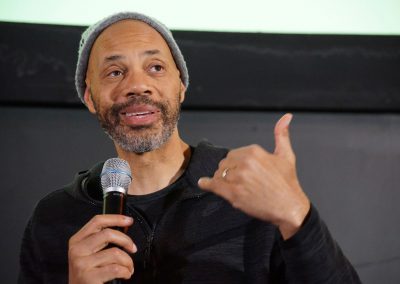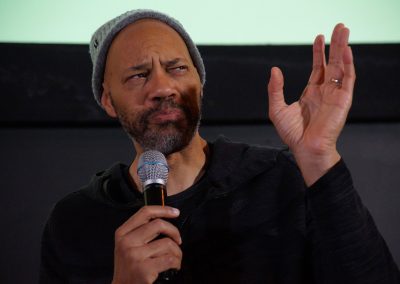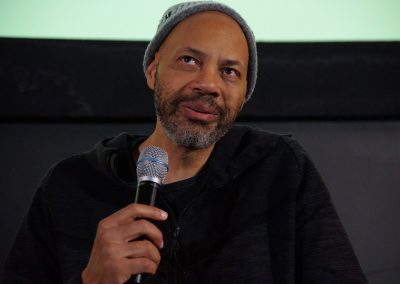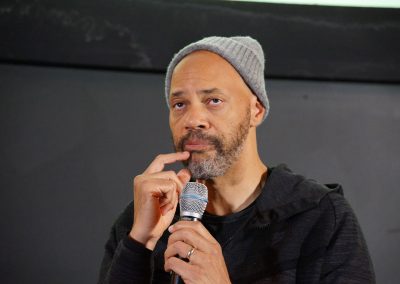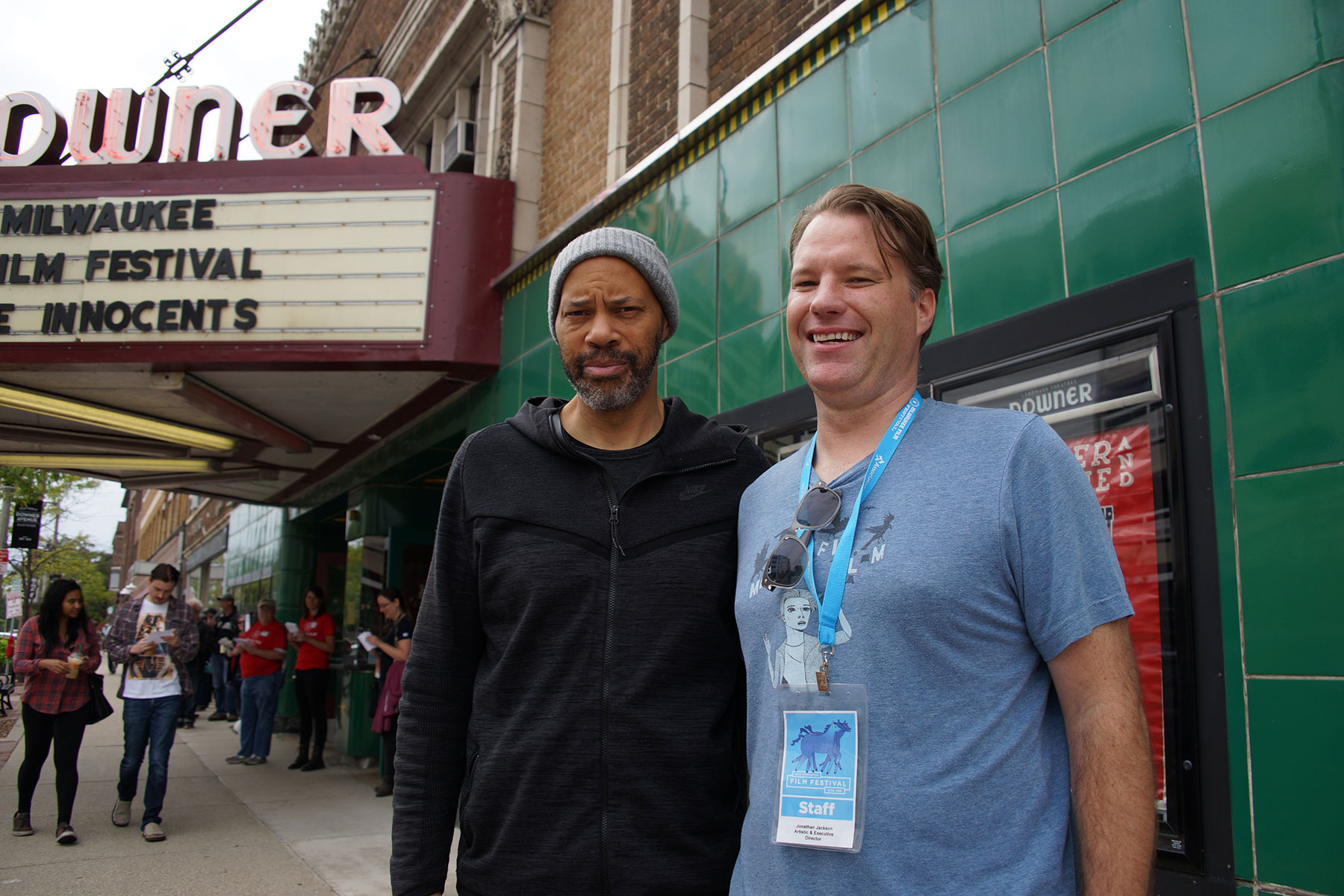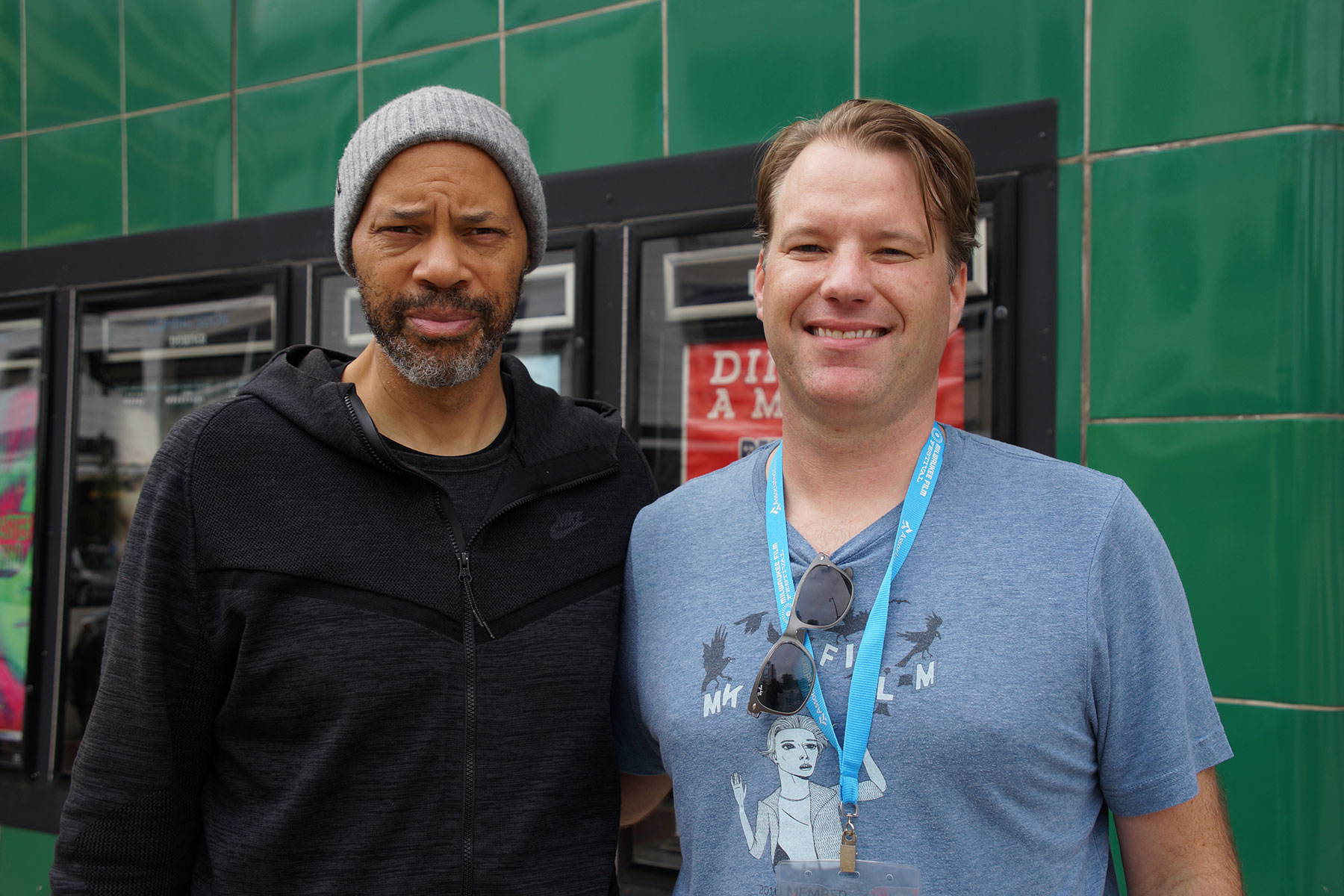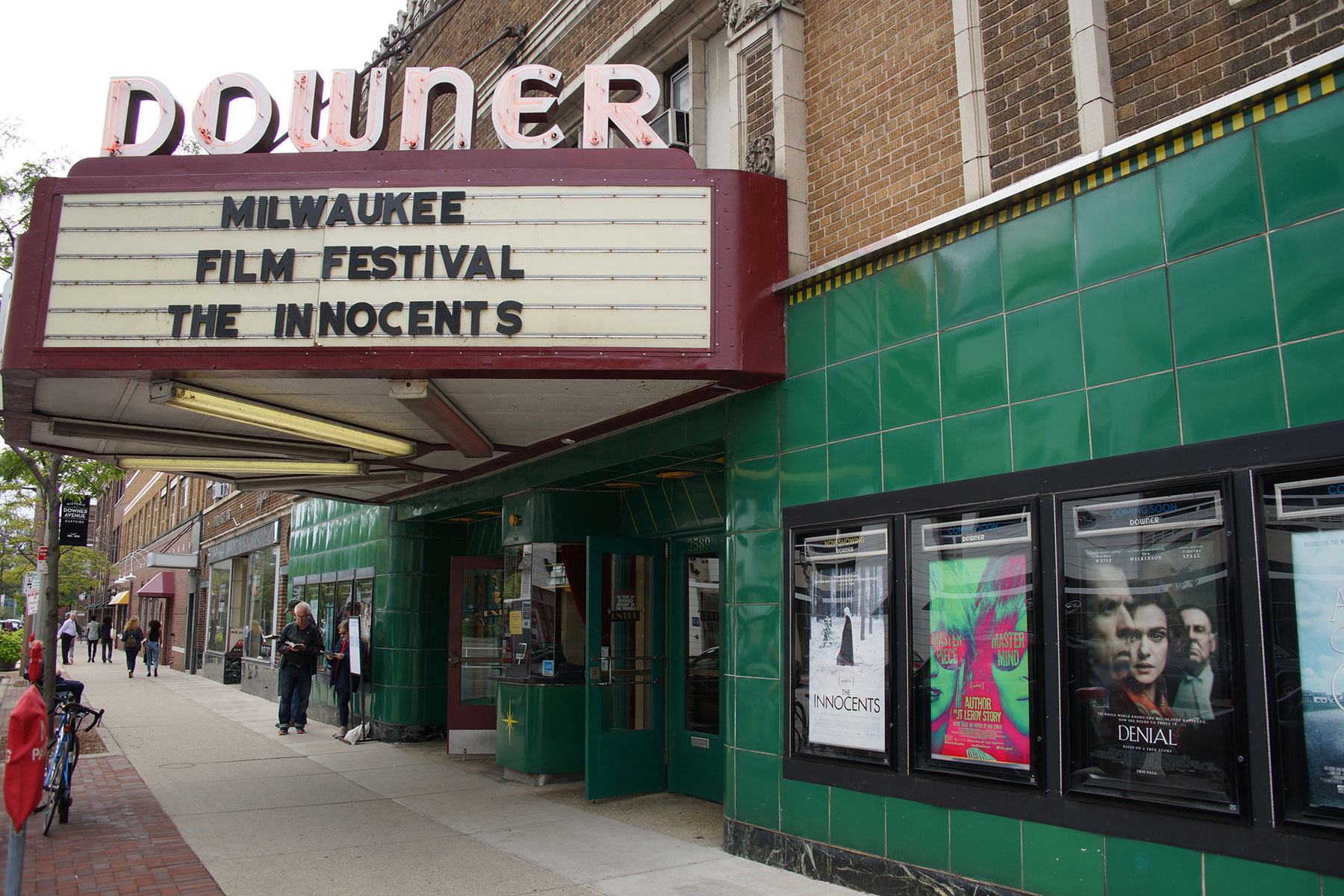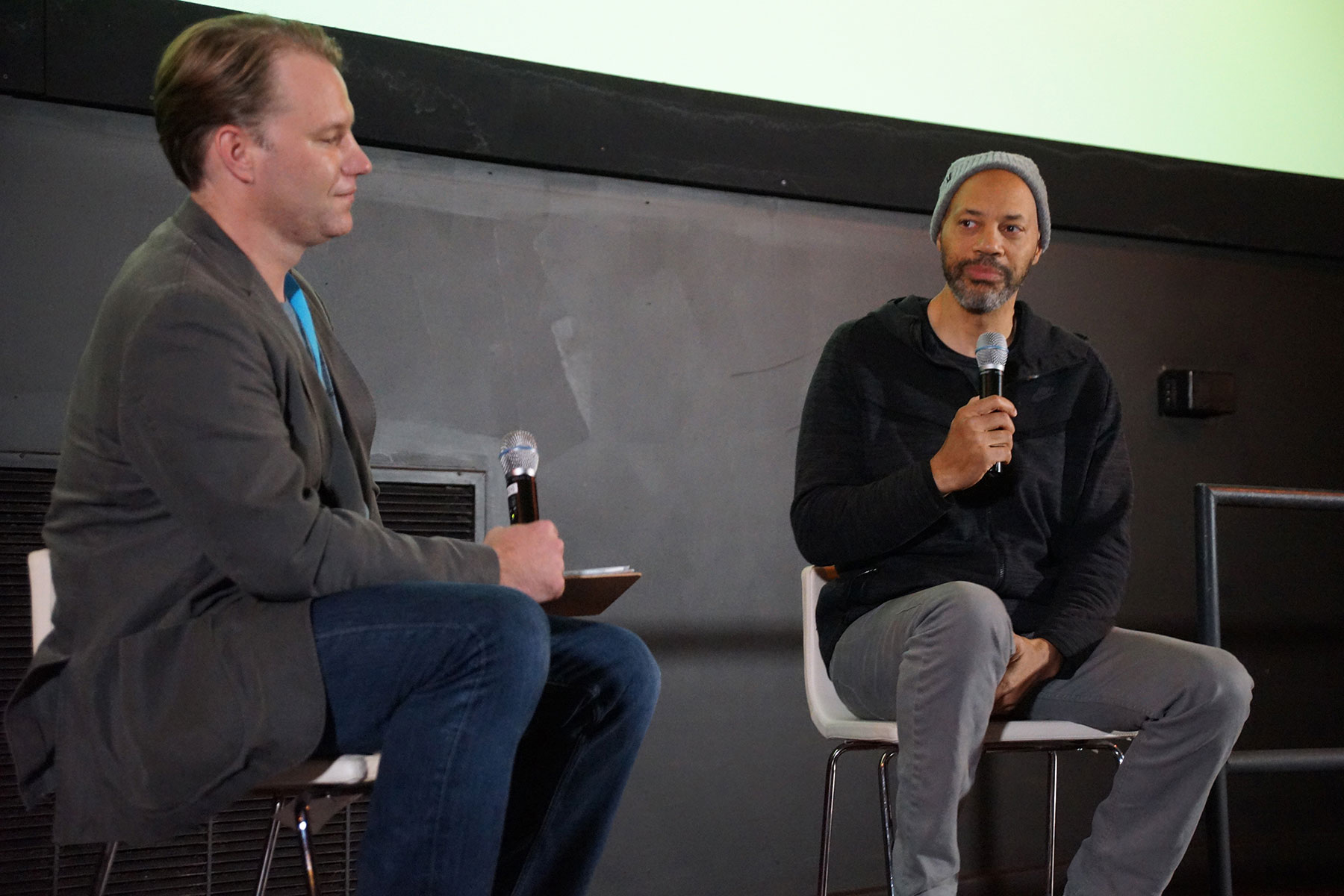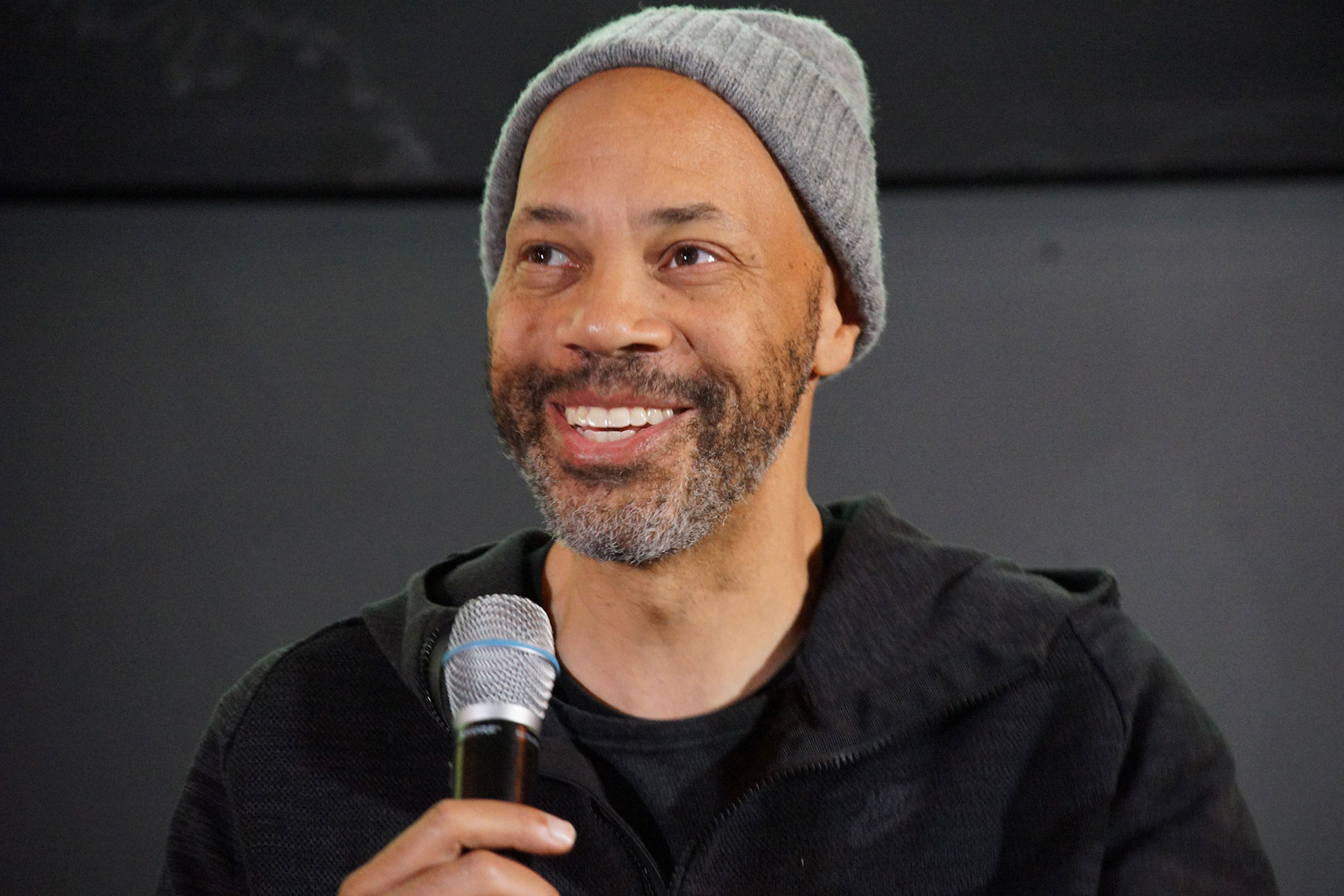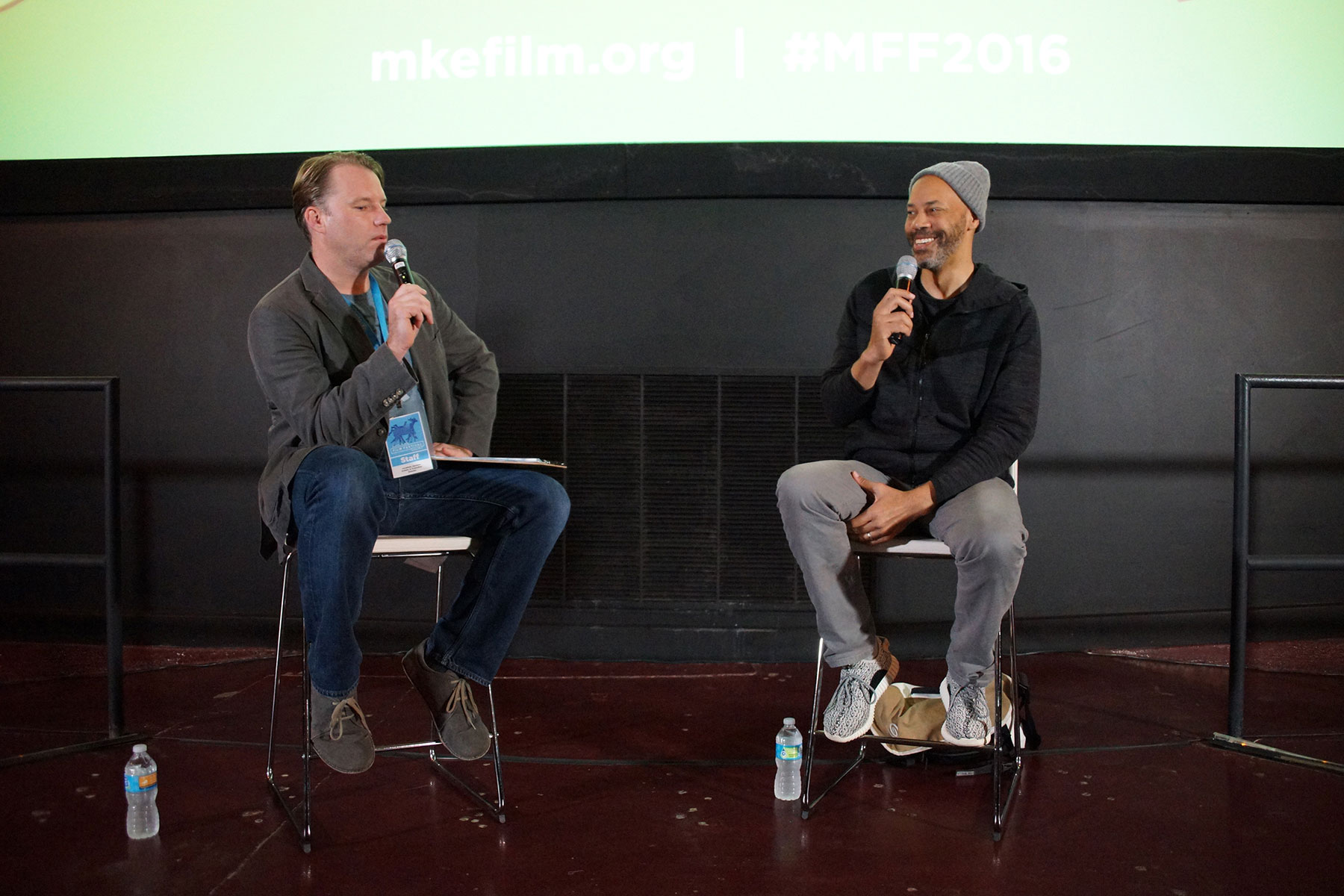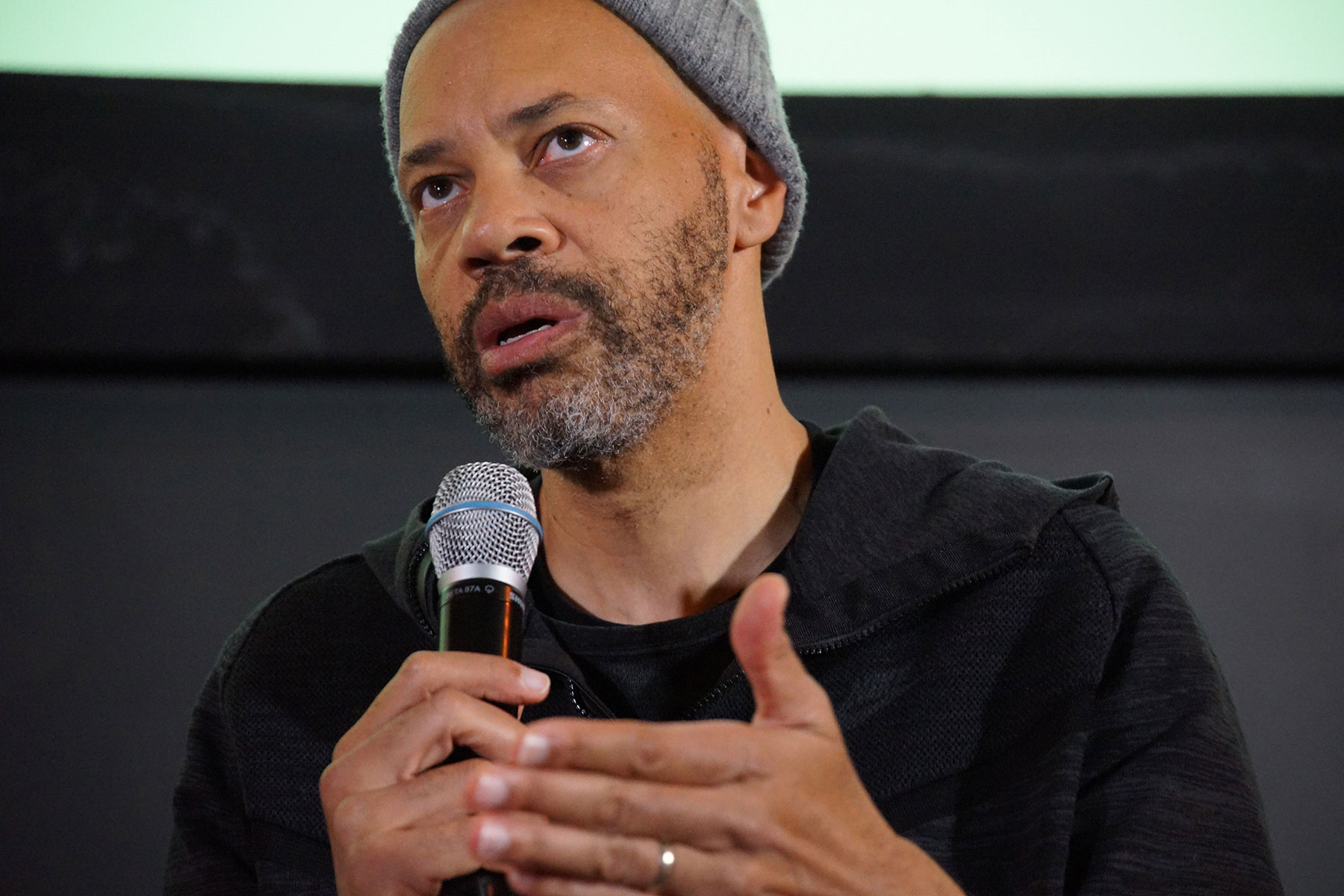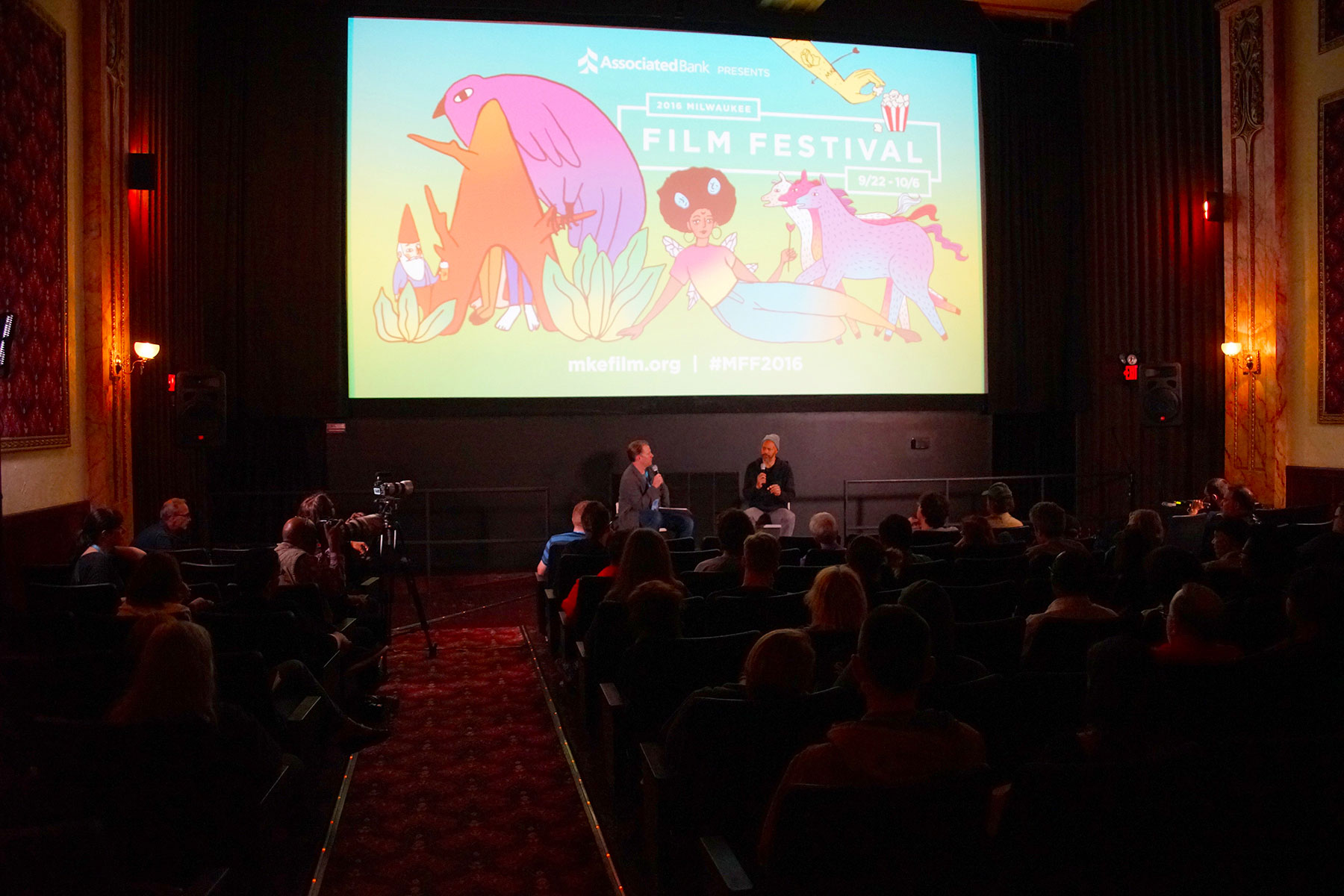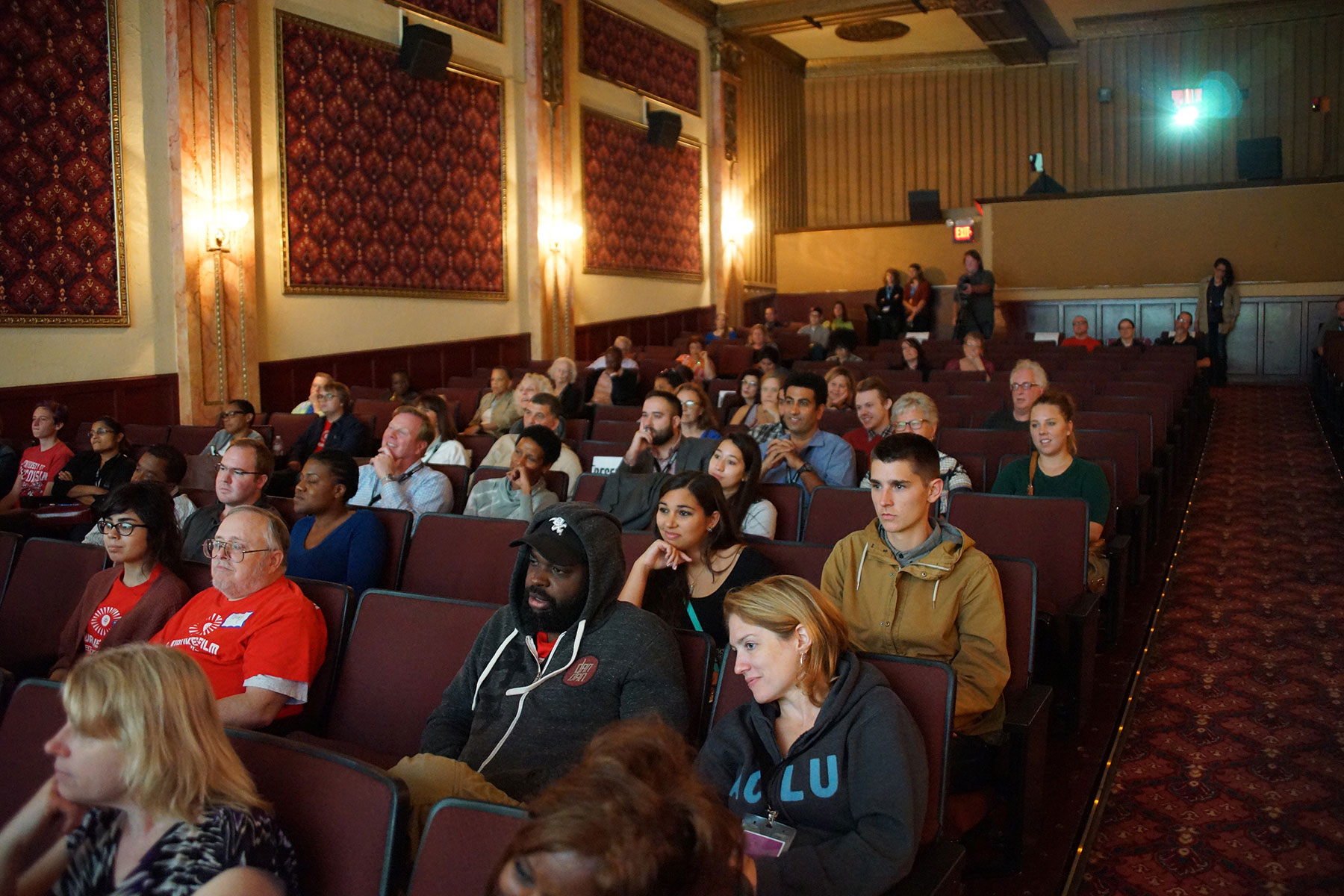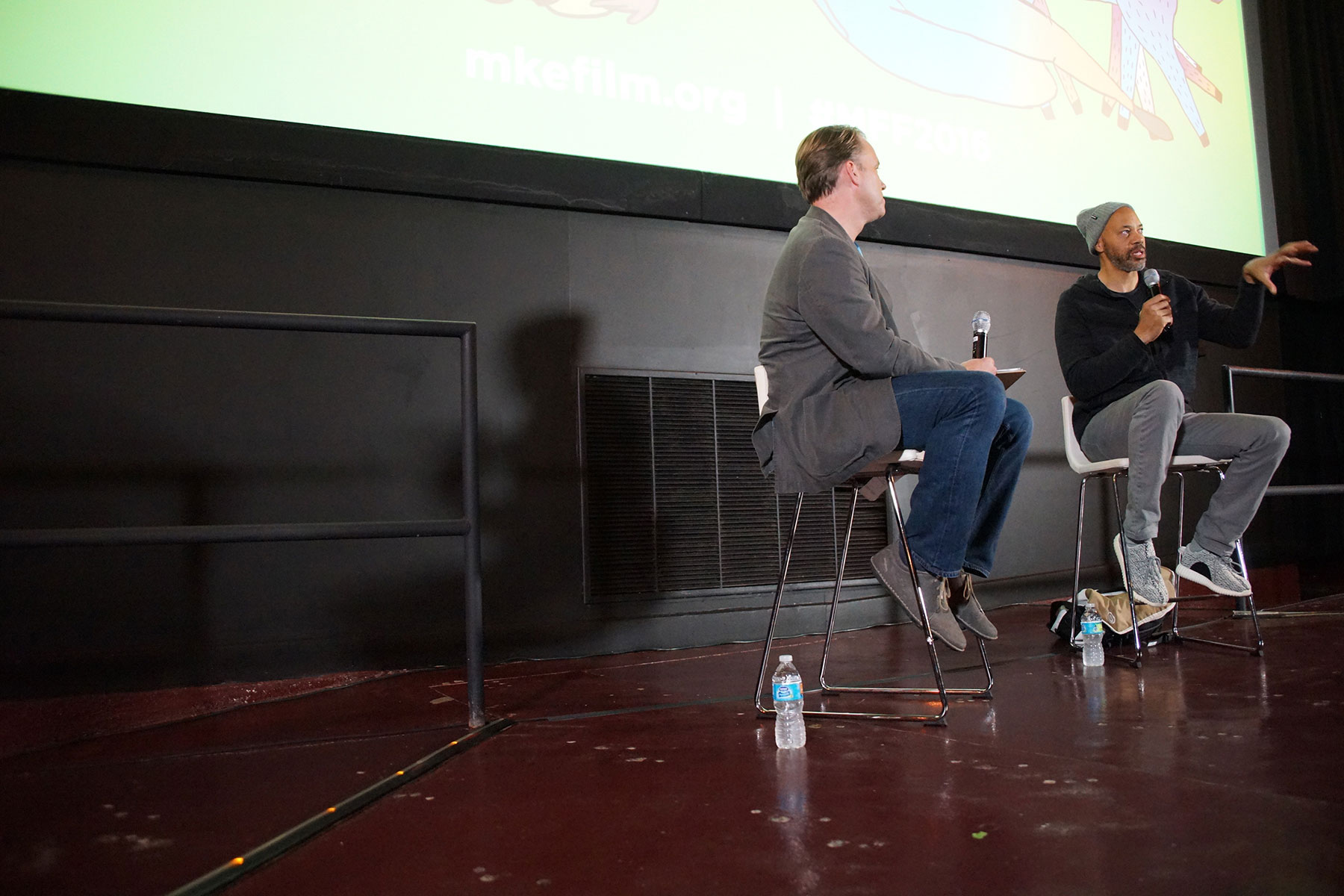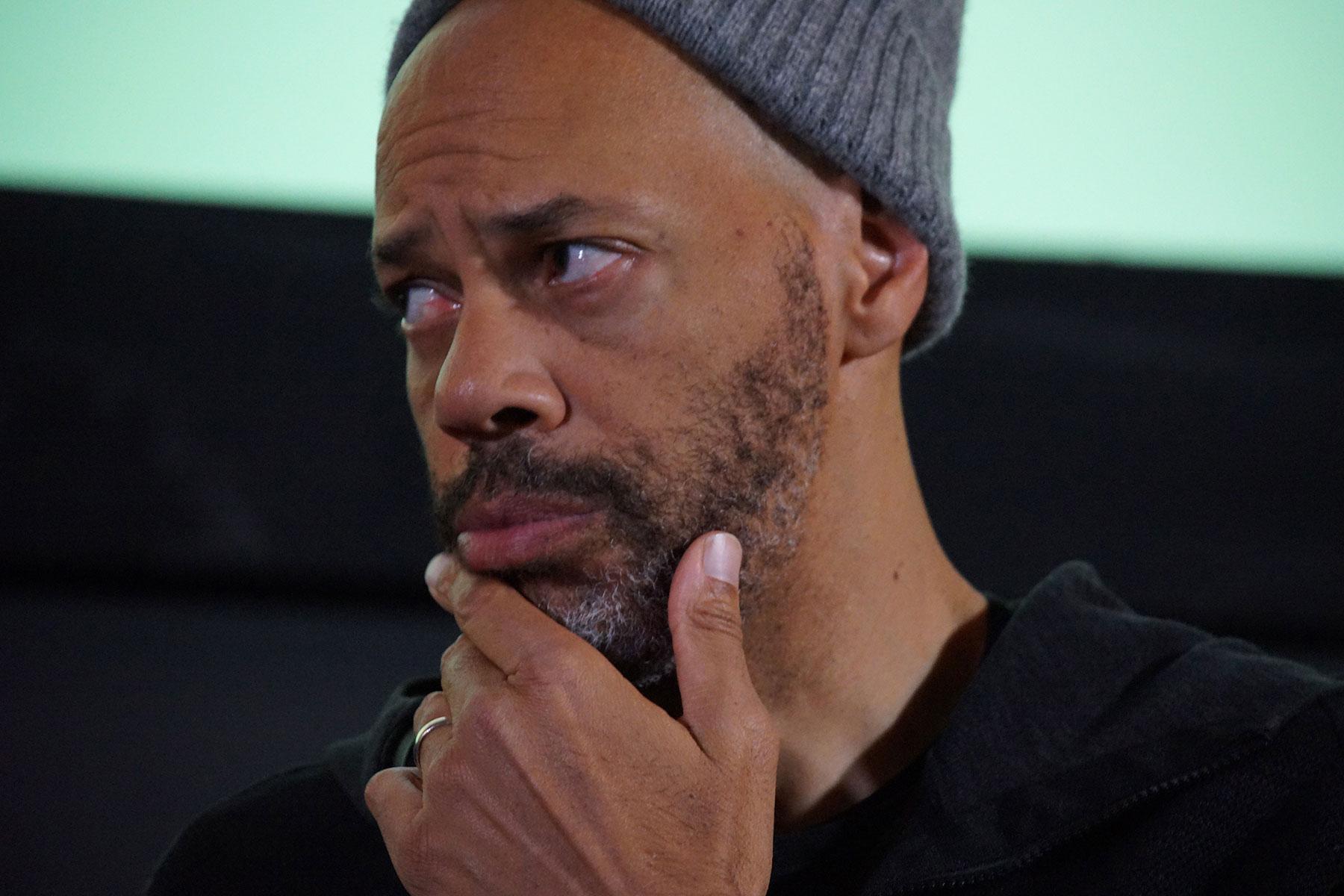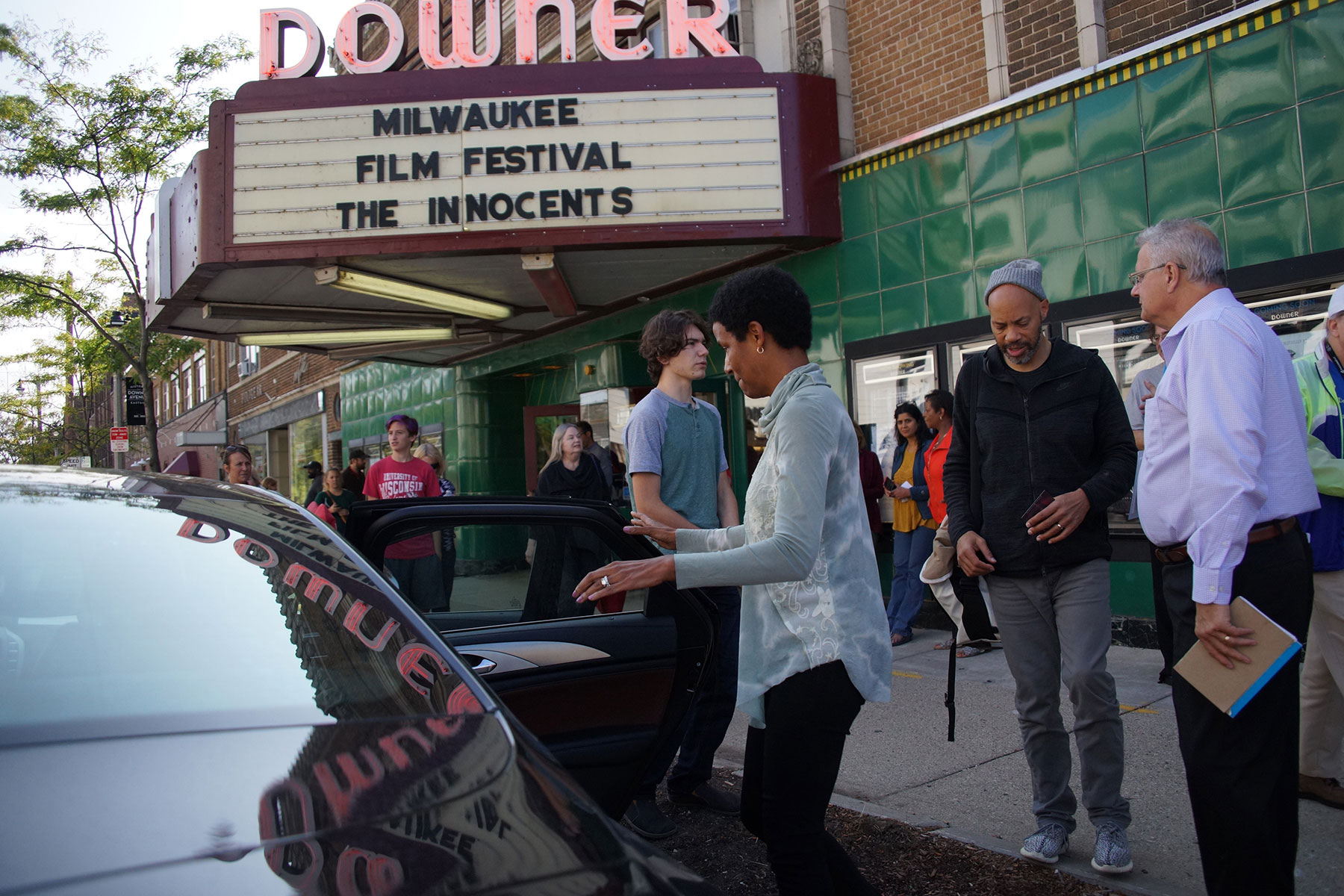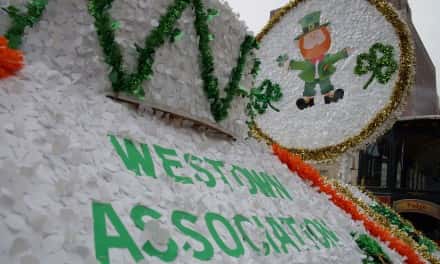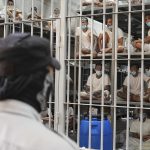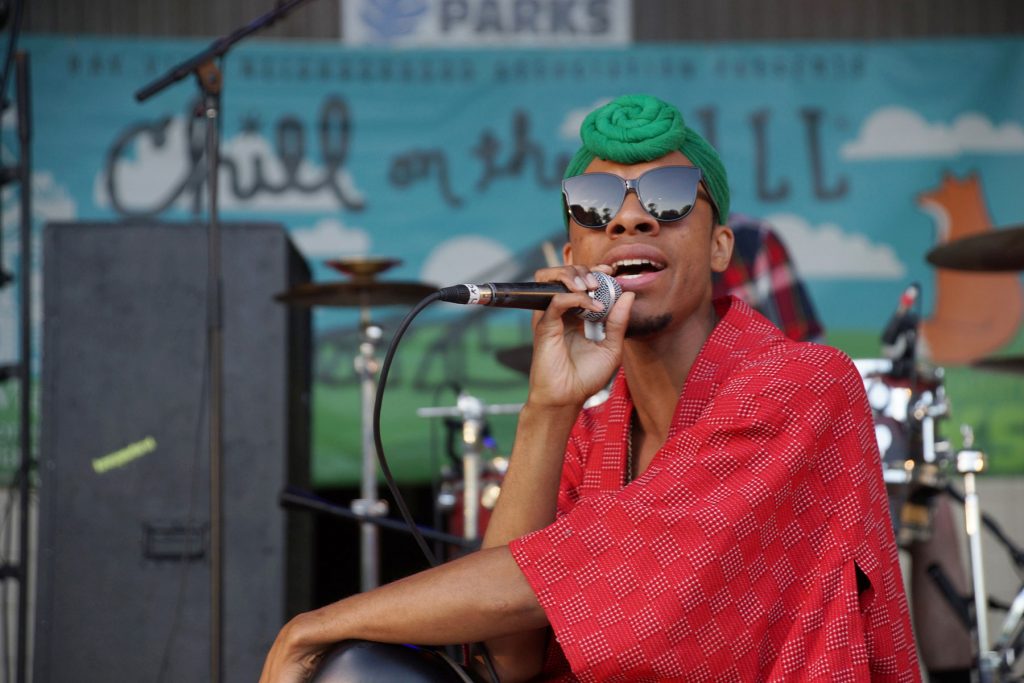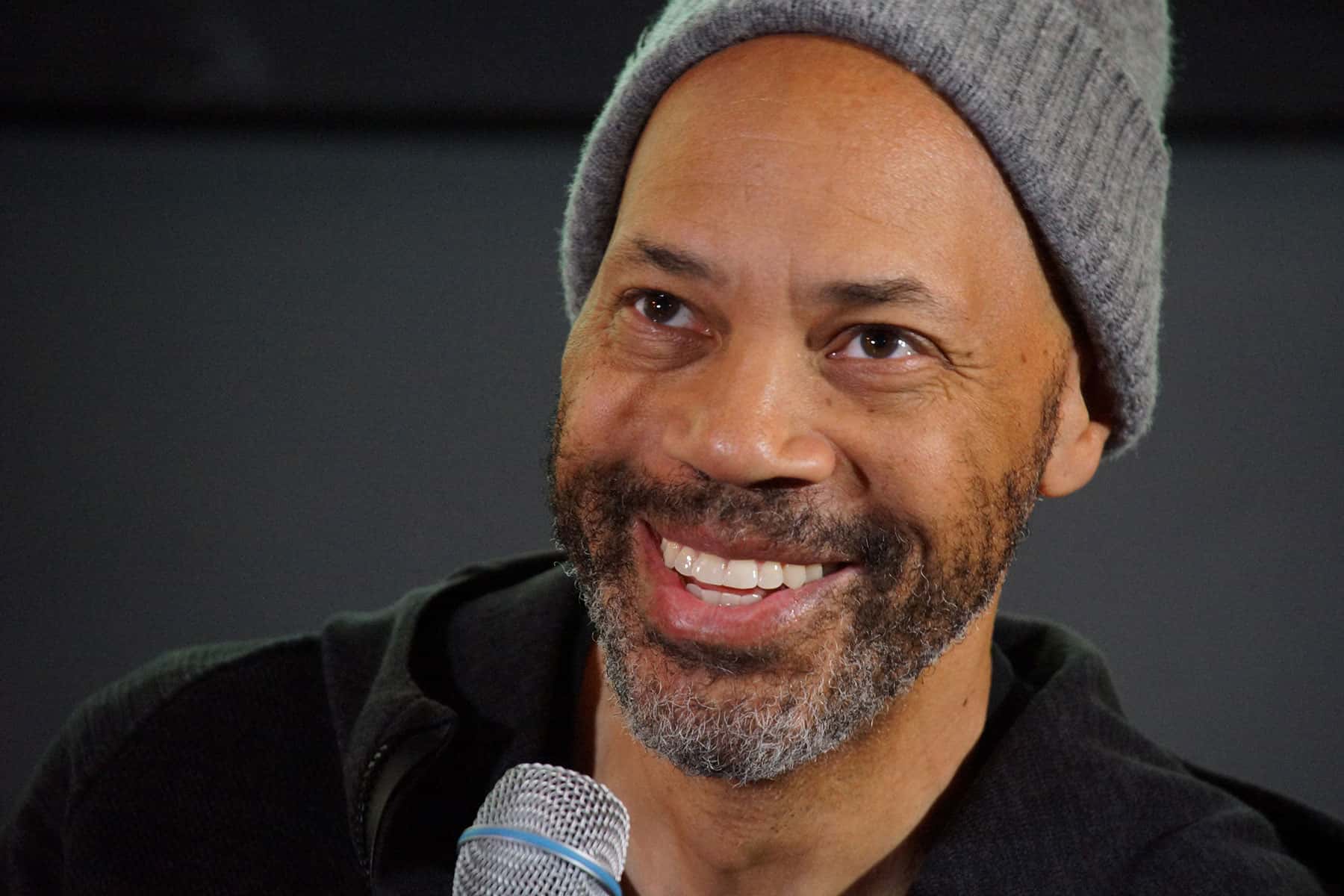
“The State of Cinema Address” is a keynote discussion held each year at the Milwaukee Film Festival. This year, Festival Director Jonathan Jackson interviewed Milwaukee native John Ridley, director, producer, and Academy Award winning writer of “12 Years a Slave.”
Ridley returned to his hometown overnight to take part in the festival, which he also recently joined Milwaukee Film’s Board of Directors. He is currently producing two television shows on opposite sides of the world, one in Los Angeles and the other London. Many topics were covered during the talk, particularly what Milwaukee would need to accomplish in order to become a regional hub for the film industry.
The quotes presented here were some of the more interesting and insightful highlights from his talk. He contextualized the current geography of filmmaking, the role and selection of locations in the production process, and the development of his own projects.
Q&A with John Ridley
John Ridley: His connection to Milwaukee
For people who may not know it, I was born here on 18th St. I lived there most of my early adolescent years, And then my family moved out to Mequon, which is where I lived for some time before leaving for college. My parents still live there, my younger sister still lives here, nieces and nephews. So we are still very connected to the Milwaukee area.
My family is in California, and I’ve been filming literally around the world for the last four years. So I don’t get back to Milwaukee nearly as much as I’d like to. But my kids love coming here. Generally we’ve been around for the last few Christmases. My older sister lives in New York, but she’s got three kids, and we’ve all go to the Wisconsin Dells in the winter. If you want to get away from all, the Dells in the winter is actually a surprisingly good vacation spot. We do get back on a fairly regularly basis.
John Ridley: When he originally started writing
I was very fortunate. I grew up in environment where my parents were just very focused on education and having a sense of self-worth, bettering yourself just as an individual. Not worrying about what other people think about you, but knowing that the things you do and the things you believe have value. So within that, I can’t say that I knew what I wanted to do. I knew that, comparatively speaking, I didn’t have a lot of marketable skills and I didn’t have a capacity for getting up in the morning, or the capacity to fit into cultured and intellectual society with people who can function in those spaces. I just and fit in that regard, so I think the things that I do now or more a necessity of would I be able to feed myself, versus you know having a artistic bent early on in my life.
I was writing, unfortunately, during geometry class in high school. I’d just sit and write stories, and every summer I would try to write a story complete like a novel. But I was never able to until later, but yes, I’d say I was writing an early age.
John Ridley: His early career dreams
I went to Homestead high school. I did a little theater and things like that. I didn’t think acting was ever going to be something that I wanted to do. It’s a very very particular skill, and the more you’re around it the more you realize how particular that skill is. It’s a real skill and it’s real job, and I don’t think I have the capacities for that. Actually, I thought about journalism for a while, advertising I thought that was a good way. I was always very curious about history, and interest in talking to people. So I thought about journalism, but that is a skill and talent that I don’t think we appreciate any more. Advertising, doing it well, is a skill and a talent. I thought I could maybe do short from pieces, do things that were a little clever or humorous to sell things. A lot of us get tired of advertising, but when advertising is effective emotionally and using humor, all these skills are used to get people interested in the product. I think that’s amazing, but ultimately I got into things I could do more in a singular fashion which turned out to be writing because it’s something I could do anywhere. I could do in a solitary manner and control the narrative I wanted to express.
My major in college is East Asian languages and culture. I thought about going to foreign service, and that would been interesting. It just seemed like something that I could fall back on, foreign service, and I still may. But at the time Japan was really becoming a dominant force in economics and the was such a fear of Japan. There was a fear of people who were not like us, and a fear of what that meant. I became very interested and rather than being afraid, I wanted to know what was this country about, what were the people like, what was the history about. I was interested in Japanese cinema, Japanese literature, so it was a way to marry interests in a potential career, if I need something that would fundamental allow me to sustain myself. So I found foreign service something interesting and it would allow me to serve my country without the other kind of service, like the military.
John Ridley: His first experience in Hollywood
The Martin show was the first thing I did that had any real cultural density to it. Martin Lawrence at that time was a really big deal then. To work on a TV show at Fox, which was still a fairly new network, was also a pretty big deal. They had Married with Children and they were hitting their stride, so being on the show with somebody who is notable, somebody who was very talented, being at a network that really needed that show was important. We shot on the Universal lot, that was a big deal driving onto the Universal lot every day. It was exciting for me having a parking space with my name on it, and that’s a big deal on the Universe lot. I still have that sign. When shows go hiatus, that was the first thing they did was blocked the signs off. And I was thinking I may never have another show like that again, or not have that opportunity. It was definitely that sense of this may be the one time, and I want to save that souvenir. In fact, it’s in my sons room.
John Ridley: African Americans in the film and TV industries
Martin was co-created by John Bowman, who’s actually from Whitefish Bay. John Bowman gave me the job, essentially that’s what it comes down to. I found it very interesting that two people came from this area. In truth I don’t think the “Martin” show launched enough careers. I remember this was 1994, so that’s 22 years ago, and being in a room that was very young at that time, I was maybe 20 years old or so, and I’m sitting in a room that is predominantly black, writers, male and female, and we looking at that time and thought twenty years from now we’re all gong to be employed. We all expected to be working in various capacities in the industry, we’d all have TV shows. We really thought that was the beginning of a big movement and I hate to say it, and I don’t say this is self-aggrandizement, but I may be one of the only people in that room who is still working today. John Bowman, who was running the show, he chose retire. He’s a good guy, but he’s a white guy, went to Harvard and he could choose what he wanted to do. But the rest of us, not all of us are working. I’m not smarter, or better, I wasn’t the funnier guy in that room by any means. There’s no good reason, there are a lot of reasons why I may be the only person from that room still working, but I assure you none of them are good.
John Ridley: His big break in Hollywood
The first big thing I did was based on a little novel I wrote called Stray Dogs. Really enjoyed it, sort of a noir type of story that I like, and just really odd. I just finished it, finished manuscript and I was working with somebody who was working with the director. He had just done some big movies, and he wants to do a really little movie, he read your script and he really loved it and wants to make a movie out of it. So this big director, he just finished a little movie called Platoon, and JFK, and Natural Born KiIIers, and he said ‘I just want to do a little movie and call some famous in. So he called Sean Penn, Jennifer Lopez, Nick Nolte, Billy Bob Thornton, Claire Danes, Joaquin Phoenix, and just went on and on and on. He just wanted to out to Arizona to shoot a move for a few days. I didn’t think in a million years I’d have anything to do with folks like that, and it was sort of the beginning.
It was actually a big deal for me because, considering the actors, if you go to the book the female protagonist is Native American. Jennifer Lopez is not Native American, she’s Hispanic and that was sort of a big deal to have a woman of color central to the story. It’s also a big deal because the rest of the actors are not people of color. And it was a big deal, because people saw that I could write stuff for people who are not people of color. I know when you hear that, you think well why couldn’t you? But in Hollywood at that time, and still today, they don’t think of people of color as being able to write anything except stores for people of color. So it was a very big deal early in my career. I would take meeting and some people would literally say to my face ‘wow, you’re black, I can’t believe you could write this.’ And I’d just sit there, it’s a meeting so you try to be professional, and I’d think why would they think that?
Honestly, that’s the kind of mentality. Reminder this is Hollywood, and the most liberal people on the planet. So if you can imagine what it’s like dealing with those folks, who are great folks and gave me a career that let me take care my family. But that’s what you’re dealing with, so just imagine every other aspect of society with any other kind of job you’re going for, like in the hotel business or the airline industry. Imagine any other business that comes up to you and asks why you are there. Well, I go a hotels, I travel on planes, I drive a car, I ate food, whatever you got I do.
John Ridley: The second phase of launching his career
So I was walking down the hallway one day, when I was writing for The John Larroquette Show, with Paul Witt and Tony Thomas, and U-Turn was just getting ready to come out. And he said ‘I hear you have this movie coming out, and really happy to have you show, and we have a movie deal at Warner Brothers, so if you ever have a script please let me know I’d love to do it.’ I’m like ‘Oh yeah, I’ve got a script, you’re gonna love the script.’ I didn’t have a script. So I went away literally to Las Vegas, took a week to write a script. This guy wants a script, you can’t pass up that chance. So I came back in a week later with the script for three Kings that ended up getting made.
When we talk about opportunity, this gentleman provide me with a career, had a deal, wanted to make a movie. My thing was, a lot of people sit around, overthink, and don’t get it done. My thinking was, you want a script, you got a deal, and you’re Paul Witt, you’re going to get a script in a week, and we’re going to make a movie.
John Ridley: Film v. Television
I separate film from TV. I like film, but film is its own thing. I like how its distributing and viewed, it’s own cultural density. The fact that it is a communal experience, different than television, is largely a solitary experience. I think that has a lot of value, people coming in and sitting down. Not everybody has a theater set up in their house. This is a very particular set up, the fact you are sitting there and conduct yourself differently in public. Like seeing a comedy with a room full of people is different than watching a comedy on your iPad. It’s still funny, but waves of laughter is a different experience, or tears with people is a different experience. So I appreciate that experience, and it is all very much focused on that opening weekend, which is great and bad. But there’s an excitement and it all comes down to this Thursday at midnight Friday.
TV is a different experience because it’s ongoing more than just that two hours, but several hours and staying with these characters. Being able to, on week to week basis, going ‘Oh, wouldn’t it be great if we did that next week, or Oh, my gosh we did that last week and it’s horrible so never doing that again.’ There is something very special about that, about playing a season different than playing one game for an hour, or playing 16 game season where every week you’re back in it, we’re not out of it yet. We can still do this, we can turn it around. That’s a big deal. So I appreciate television. I love television. Television in someways, at storytelling, in the kind of talent that attracts, I think it has surpassed film at this point, there are no two ways about it. That doesn’t mean there aren’t great films, or great storytellers, but the function of majority of film serves a different purpose. It’s not a bad purpose, by any means, and I want to be part of that. But TV, like American Crime, that’s the kind of films I grew up on when I was younger, like the China Syndrome, Network, All the President’s Men, they don’t make movies like that anymore. A film like Spotlight, that got made and got out there, but it’s geared towards films that are coming out now. They used to be the films coming out all your long, and I mean now as in between November and January during award season.
I definitely wouldn’t work in film exclusively because it takes too long to get made. Too much money is riding on opening weekend. You only have two hours, and that would drive me crazy. Finances aside, I just don’t like sitting around for three years waiting to see if how it happens. I like TV, we started American Crime on Monday, and we’ll be on air by January. You’re in production every week, so you’ve got to make it happen. It’s just go time constantly, and that’s exciting.
John Ridley: When stories are connected to historical settings
Most films I write tend to be based on history, Red Tails, Jimi: All Is by My Side, 12 Years a Slave obviously, so it’s all sorted built in what’s going on are you going to do. But with American Crime which is fictionalized, we try to pick cities or locations that could be anywhere in America. It wasn’t going to be New York or LA or San Francisco that are in the news, for one reason another, constantly. We started before Ferguson but ironically, sadly, Ferguson sort of became a benchmark for what we wanted to do. It was a city most of us had never heard of that now when you mention it, it mean something very particular. Unfortunately it may not have the chance or invented itself the way New York is constantly reinventing itself. Orlando can mean many things, unfortunately recently meant something, but it will have the opportunity to mean something else to us again. But Ferguson will probably, unfortunately mean only one thing. So we went to Modesto in our first season. On our second season we went around Indianapolis which certainly has much more going forward, but it’s a city that is sort of steady and quiet. You don’t hear too much to the good or the bad, maybe how the Colts are doing. But beyond that, Indianapolis is a steady place but there were things going on in around there that were shocking to us, and could happen anywhere in America. When your writer particularly when you’re doing things that you think are are socially urgent, you want to set stores at a locale that mean something.
As much as you want to present stores that have a relevancy, this year we decided to set our story in North Carolina with no concept of things that would be going on right now. But now we can find a way to integrate some of that into our telling. It’s one of those things where people ask us how did you know about this? It’s not that we knew, we were just reading stories. And all this is out there and it’s just a matter of which cities are going to be a jump off. It’s going to happen, and we’ve been doing this for three years now and every year people ask us ‘how do you know that subject matter?’ Well, because we talk to people, and we listened, and then we just pick the city and it could’ve been any city anywhere.
John Ridley: The new show in production
So the show were doing in London is called Guerrilla and it’s about the urban guerrilla movement in the 1970s, starts in London with the black power movement in 1971. There was an immigration act that was going down basically take people who were from the colonies, people of color, and through legal language potentially kick them out of the country. Thank God that was 1971 and we don’t have to deal with immigration issues and kicking people out of the country in 2016. But shockingly, even though the story it was set 1971, there are so many elements that are still relevant right now. It stars Idris Elba and Freida Pinto, with a really great cast, that shooting right now in London an American Crime is shooting in Los Angeles.
John Ridley: How Milwaukee can fit into Hollywood’s need
You have to have a community that is welcoming and open. And I’ll say this very honestly, for me in the way I grew up and the things that I believed, the idea of shooting in Texas was not necessarily attractive to me for a lot of reasons. That’s until you get to Austin, Texas and quite frankly that’s until you get to Texas. Folks there are as wonderful individuals as you’d want to meet anywhere. And Austin in particular is an amazing creative community. That’s what is very important, is this community, where people can work together in all regards. When you bring a film production down, it’s every aspect of creativity and business. Of course it’s actors, that’s one aspect of it, but it’s catering, it’s construction, it’s painting, it’s the Teamsters and driving in trucks and vehicles, and wardrobe, and sourcing all that, and business elements in terms of renting property, in securing leases, and all those things.
Then beyond that you want a community because people start bringing their families in, or their friends in, or people want to come visit. And you want areas that are easy to navigate that after you’re done shooting, where to go for meal? What else is there to do beyond just shooting? So to have a community like Milwaukee, where you have all these things in terms of being to get around easily, you have the lakefront, you have the festivals in the summer, you have a growing restaurant scene, and a good night life. You have places that you can walk to, you have roads that are largely not traffic jammed all day long, which is very important. Anytime you have to make a move in production during the day, going between two locations, a move takes a lot of time out your filming. So to be in a city were you can move and actually get where you’re going in short amount of time is fantastic.
We look for a community that can be excited about having people come into neighborhoods that are challenged. It’s not a challenge for filmmakers, we make films everywhere and in every kind of neighborhood. We shot all over so we’re not afraid to go to places
John Ridley: The future of the film industry
People are very focused on the Oscars being so white. But if you’re upset that actors of color didn’t get in, you’re missing the bigger picture. On our crew we have one of the most reflective crews working, and you see our camera department has a female, or people of color. Those are technology jobs. No disrespect to actors, I really don’t my kids to be actors. But my kids picking up a camera and understand technology, and how to read light meter, and have between kinds of cameras, and understands postproduction. So why would you not want people and technology? I’m happy if actors are getting their due, I really am. I’m more concerned that there aren’t enough people of color working in CGI and postproduction, that’s the future. That’s what we should be encouraging, and that’s what we’re talking about bringing to any city. Because once you bring the cameras, who’s your DIT? Who is downloading the material? How are you uploading that? How are you getting footage back to Los Angeles? Who’s doing color correction? When using CGI, we have someone from a CGI house comes out and looks at it and tells us ‘you need to be careful about that’ or ‘make sure you get a plate here.’ That person stays where they are with the local CGI house. That’s a technology job, so those are the things that I would like to see brought to this environment.
© Photo
Lee Matz

